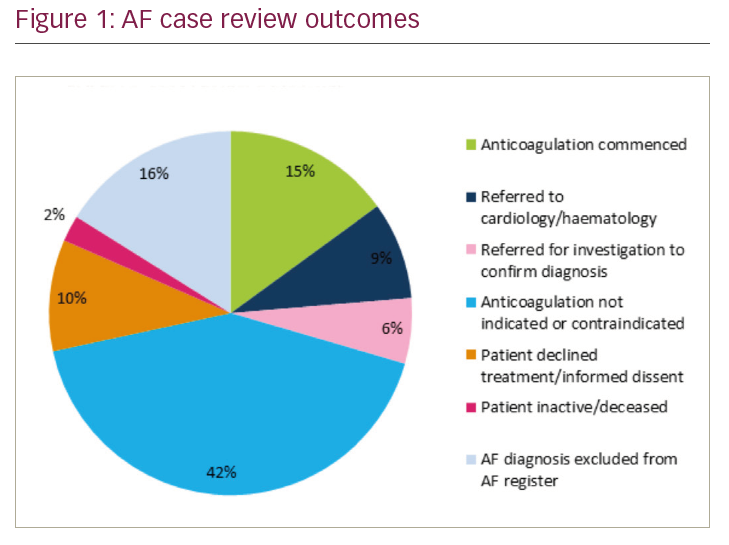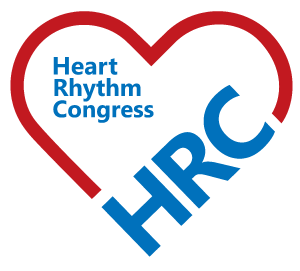Introduction: Clinical pharmacists are a new workforce in Primary Care Networks (PCN) and can play a critical role in realising the NHS Long Term Plan ambition, principally through secondary prevention.1 A centralised pharmacist model was implemented in the delivery of the NHSE Atrial Fibrillation (AF) patient optimisation demonstrator programme 2018-2020 aimed at preventing AF related stroke in Haringey.2 The workforce supported practices to identify patients with undiagnosed AF and ensured patients with a confirmed diagnosis were prescribed appropriate anticoagulation. The focus was to reduce the treatment gap to match the national ambition of anticoagulation rate in high risk patients with AF.
Method: 13 clinical pharmacists covering 36 GP practices in Haringey received AF training. In-house education sessions, AF case review templates and AF detect, protect and perfect pathways were designed to support upskilling. The APL AF tool by UCL Partners helped identify AF patients with a CHADSVASC≥2 who were not anticoagulated or on suboptimal therapy. The baseline data for all the practices in Haringey were obtained from the NHS quality and outcomes framework (QoF) indicators. Clinical pharmacists reviewed patients not prescribed anticoagulation treatment or prescribed aspirin as monotherapy. The cases were discussed in the virtual clinics with the specialist anticoagulation pharmacist and GPs. Actions post virtual clinic were also completed by the practice-based pharmacist including patient follow ups for shared decision.
Results: In total, 807 AF case reviews were discussed in the virtual clinics for 36 practices. Of these reviews, 121 patients were commenced on anticoagulation, 70 patients were referred to cardiology/ haematology, 47 patients were referred for investigation to confirm diagnosis and 340 patients were contraindicated or not indicated to treatment (Figure 1). Overall, there was an increase in percentage of AF patients with a CHADSVASC ≥2 prescribed anticoagulant from 78% (2018/19) to 84% (2019/2020) in Haringey GP practices.
Conclusion: Improvement in anticoagulation rates and reduced inappropriate antiplatelet monotherapy will provide better outcomes for patients and demonstrates successful utilisation of the newly recruited primary care workforce. A centralised pharmacist model in primary care provided a standardised and sustainable borough wide approach in managing AF patients. The model also provided an opportunity for the pharmacists to upskill GPs and share learning with the multidisciplinary team to improve anticoagulation prescribing and ensure sustainability of the outcomes. Improved confidence of pharmacists in managing AF patients in primary care will continue to allow for better detection, protection and perfection of AF.
References
- National Health Service (NHS) England. 2019. NHS Long Term Plan. Available at: www.longtermplan.nhs.uk/ (accessed September 2020).
- National Health Service (NHS) England. 2018. Memorandum of Understanding For The Delivery of The Atrial Fibrillation Patient Optimisation Demonstrator Programme 2018/19- 2019/20.








